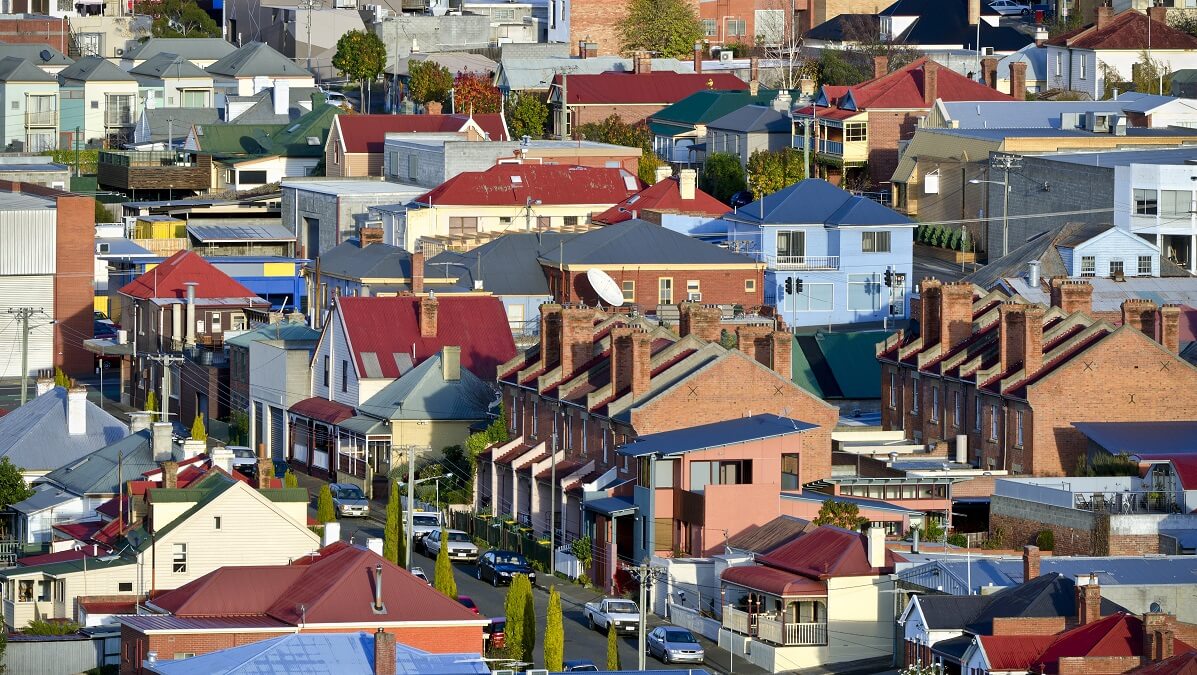The Australian property market, a topic of much discussion and concern for homeowners and investors alike, has taken a surprising turn. After a robust period of growth, defying the challenges of high interest rates and inflation, the market has seen its first decline in nearly two years. CoreLogic’s latest data reveals a 0.1% fall in national home values in December, a subtle yet significant shift in an era of relentless price increases.
This downturn, following a flat November and a year of decelerating growth, may have caught some by surprise, but not industry experts. Tim Lawless, the research director at CoreLogic, views this adjustment as the market aligning with the underlying economic forces at play. ‘This result represents the housing market catching up with the reality of market dynamics,’ he stated, acknowledging the inevitable impact of the broader financial landscape on property values.
The resilience of the housing market had been noteworthy, especially considering the Reserve Bank of Australia’s aggressive stance on interest rates to combat inflation. Despite these measures, home prices had continued to rise between February 2023 and October 2024, a trend that seemed at odds with the tightening of borrowing capacity and the squeeze on household budgets due to rising living costs.
Interestingly, it wasn’t just the major cities that experienced a slowdown. Even mid-sized capitals, which had been enjoying robust price growth, began to feel the pressure. Perth managed to record the largest increase in December, with a 0.7% gain, culminating in an impressive 19.1% annual growth. Adelaide and Brisbane followed suit with modest gains of 0.6% and 0.5%, respectively, while Darwin showed signs of recovery with a 0.4% improvement after a year of underwhelming performance.
Lawless pointed out that the shift in buyer demand towards more affordable markets had propped up growth in these areas, as worsening affordability and borrowing constraints made pricier markets less accessible. However, not all capitals fared well in December, with Sydney and Melbourne experiencing declines of 0.6% and 0.7%, respectively. Dwelling values in Victoria’s largest city have now decreased by 3% points compared to the previous year.
Regional markets, often overshadowed by their metropolitan counterparts, have held up slightly better, with a 0.2% increase over the month and a 6% annual rise.
Looking ahead, while interest rate cuts expected in 2025 may bolster housing demand, CoreLogic does not anticipate this to ignite another surge in price growth. In a silver lining for renters who have been grappling with financial strain, the 4.8% rise in rents over the past year is the smallest annual increase since the period ending March 2021. This stabilisation of rent prices, coupled with the return of overseas migration and an increase in household sizes, suggests that the rental market may be reaching a new equilibrium, albeit with growth rates still double the pre-pandemic average.
Have you observed any changes in your local property market? Are you thinking about buying or selling in this current environment? We’d love to hear your thoughts—join the conversation below and share how the recent shifts in property prices are impacting your decisions and financial planning.
Also read: Thinking of investing in property? Read this first


I am like many other Australian Home Owners, I am NOT a Seller, Buyer or Investor, and therefore am not really interested in these price fluctuations.
They may change my Virtual Wealth, but NOT my Actual Wealth and Day to Day spending, I still have my Bills to Pay, even though they are increasing, and my Income (Pension) is virtually Stagnant !!
What I am interested in is the RBA Cash Rate to which Mortgage Interest Rates are linked, as I am a Retiree with a Mortgage !!